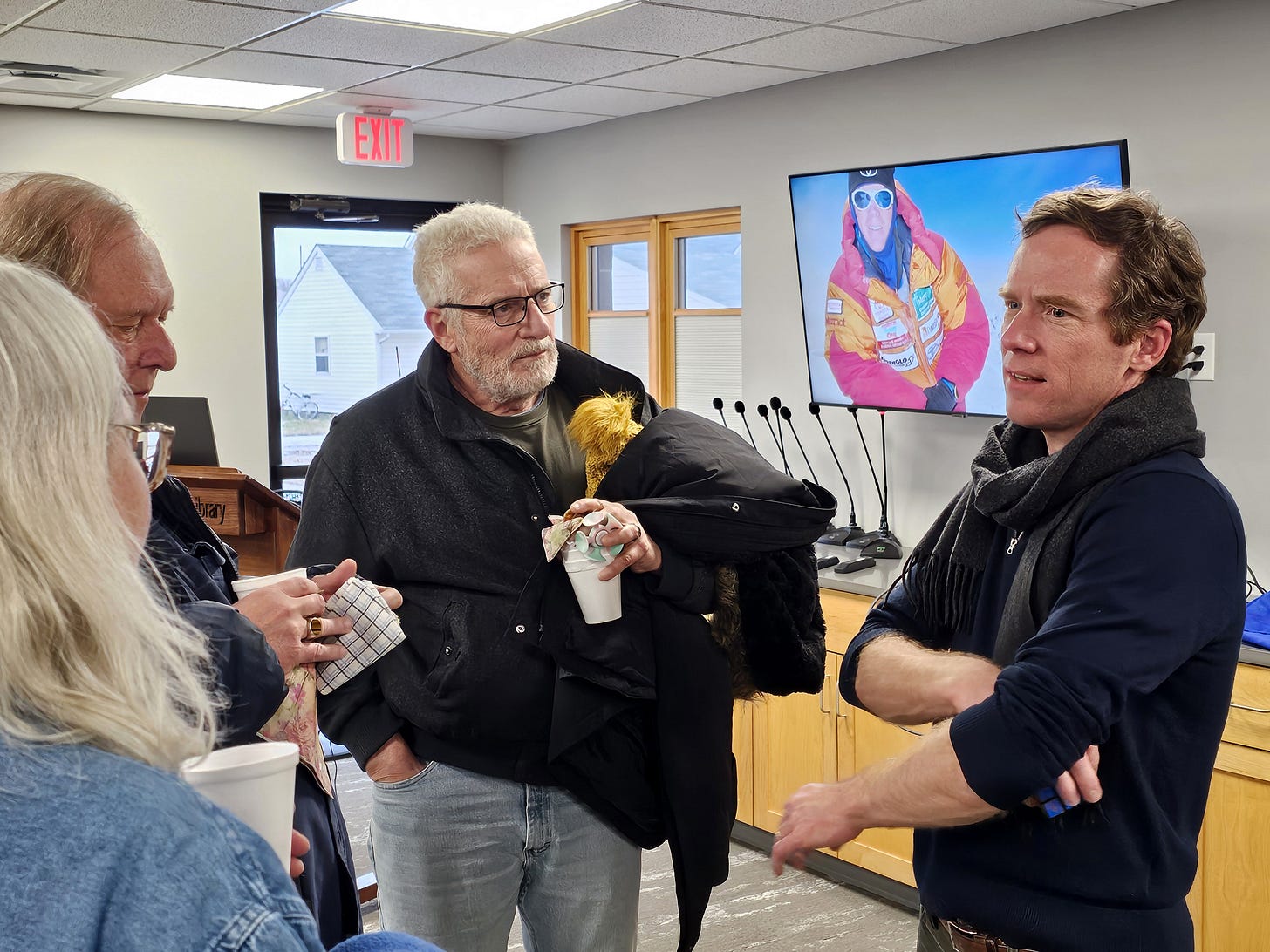Have you ever been bold enough to have a dream so big everyone thinks it’s impossible? Charlie Wittmack has.
This Des Moines-area attorney climbed Mount Everest, swam the English Channel and rode a bicycle 8,000 miles across Europe and Asia to Kathmandu, Nepal. He shared remarkable stories of his “World Triathlon” during a program at the Lake View Public Library earlier this year, and I was riveted.
There was an overflow crowd that Saturday afternoon. None of us were super-athletes looking for tips to gain the winning edge. Yet that’s exactly what Charlie gave us, thanks to his ability to translate lessons from endurance sports into real life.

Consider five gems:
1. Take small steps to reach big goals. When Wittmack was growing up in the Boone area, he read a book about Captain Matthew Webb, an Englishman who was the first recorded person to swim the English Channel. The story captivated Wittmack. Why not try it himself? What if he made it part of the world’s toughest triathlon? To fund his dreams, Wittmack started working various jobs, making $8 an hour pouring concrete. The young adventurer also secured a loan from Bankers Trust. “I learned early on the importance of taking small steps to get me from where I was to where I wanted to be.”
2. Do the next right thing. When Wittmack was completing the World Triathlon, his body burned about 14,000 calories a day (can you imagine?) Sometimes his epic odyssey almost overwhelmed him. When it was time to bicycle from Europe to Asia, Wittmack didn’t dwell on the hardships inherent in crossing 11 countries, including the massive desert. “Instead of focusing on how I’d get from France to Kathmandu, I just got on the bike and made it go forward.”
3. Seek signs of hope. Wittmack understands the allure of giving up. During his 8,000-mile bicycle journey to Nepal, he decided to call it quits in central Asia in the Kazakh Steppe, a desert that stretches from the western border of Kazakhstan to the Tian Shan mountains on the border of China. As he pedaled to the next town to find the nearest train station, he met some French adventurers on an around-the-world walking journey. “There was something really different about these guys’ thinking. They said, ‘Oh, you’re the American who’s always in such a hurry,’” says Wittmack, who credits this interaction with renewing his hope and motivating him to press on towards his goal. “We all have times in life when we’re going through a desert. Look for signs of hope, especially when it feels like your destination is a long way off.”
4. Don’t give up. There are good days and bad days, whether you’re training for a triathlon or just living daily life. During his grueling World Triathlon quest, Wittmack was diagnosed with amoebic dysentery, pulmonary anemia and cerebral anemia. (If pushing his body to the limit wasn’t enough, he was hit by a car in Kazakhstan and lost vision in his right eye.) “Take advantage of the good days to charge your batteries for the tough days,” he advises.
5. Find the purpose beyond your passion. Climbing Mount Everest (the highest point on earth, at 29,035 feet) as part of the World Triathlon became more than a personal quest for Wittmack. During his time in Nepal, he was troubled to learn that thousands of newborns and young children in the country die each year from preventable causes. He has helped raise money for Save the Children, an international organization that helps kids get a good start in life. “When I reached the top of Mount Everest, I realized what a small piece of creation I am, yet what a difference we can make if we commit to being part of the change.”
Indeed, Charlie. Thanks for the inspiration from the top of the world.
(Darcy Maulsby—Iowa’s Storyteller—is a fifth-generation farmer, as well as an ag journalist, business owner, and author and speaker from Lake City. You can learn more about her work at www.darcymaulsby.com. She’s also a member of the Iowa Writers’ Collaborative. )



